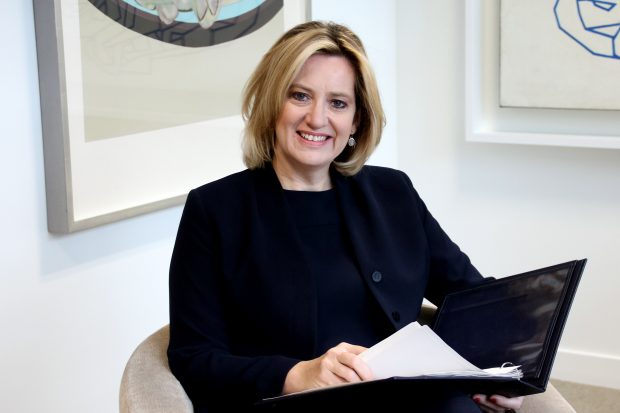
Today, the Home Office launched its drugs strategy, and The Home Secretary has written exclusively for the Huffington Post to outline the Government's ambition in tackling the problems caused by drugs. You can read her piece below.
The Home Secretary, Amber Rudd:
My job as Home Secretary is to keep families and communities across our country safe.
Drugs destroy countless lives. They lead to crime, violence and disorder on our streets. They are one of the creeping and corrosive threats to our society that we must do more to tackle.
But I am also determined to do all I can to protect the most vulnerable, who too often become the victims. That is why today I am launching the Government’s new drug strategy which sets out how we will tackle the deadly impact of drugs, including substances like spice.
Drugs are illegal because they devastate lives. They are illegal because traffickers target vulnerable people all over the world and exploit their misery. They are illegal because of the agony caused when people become solely focused on their next fix.
The police and law enforcement agencies already do a remarkable job protecting us from the harms of drugs. Just 10 days ago Border Force and National Crime Agency officers helped intercept 1.5 tonnes of uncut South American cocaine, with a street value of about £200 million at sea, preventing it from entering the UK.
Last year, the Psychoactive Substances Act introduced a blanket ban on so-called ‘legal highs’, meaning back-yard chemists can no longer dodge the law by making small changes to the make up of dangerous drugs.
We will all have seen the terrible effects of Spice on the homeless population. The Government has already controlled this drug under the Misuse of Drugs Act, ensuring the toughest sanctions are in place.
Let there be no doubt: under the new strategy unscrupulous drug dealers will continue to face the full force of the law. Being tough on drugs is vital, but it cannot be all we do.
It is vital we protect the vulnerable - to prevent them falling into the cycle of drug abuse and to help them turn their lives around. Doing so will spare countless families the agony of seeing a loved one’s life destroyed. It could save lives. And it will reduce the burden placed on our public services, in particular the police and the NHS.
As Home Secretary I have seen first-hand the work being done to combat drug dependency. Earlier this year, I visited a recovery centre for women who want to live free of drugs. I spoke to inspiring staff members and heard the often harrowing stories of service users. I was heartened to see how these brave women were being supported to piece their shattered lives back together.
At another facility I went to, those recovering were helped to find stable housing, look for a permanent job or apply for university and vocational courses.
These are crucial steps towards helping individuals live a life free from drugs. I saw for myself how it is not enough to support people recover without fixing the root cause of the problem.
It is too often the most vulnerable: the homeless, people with mental illness, people who suffered domestic and sexual abuse, whose lives are destroyed by drugs. It is this vicious cycle that I am determined to break with this strategy.
That is why I am going to appoint a National Recovery Champion, whose mission will be to make sure this strategy is converted into real progress on the ground. The Recovery Champion will travel up and down the country, meeting NHS staff, police officers, teachers, community groups and local authorities, who all have a vital role to play. They will frequently report back to the Drug Strategy Board that I will personally chair to ensure everyone is accountable. I believe this strategy is balanced and comprehensive.
Balanced, because it reinforces our commitment to stamp out drug related crime and violence, while recognising that the path to recovery is not easy. Comprehensive, because helping people laid low by drugs back on their feet is the only way we can achieve lasting and concrete progress.
This strategy is a vital part of our work to protect the vulnerable and make our families and communities even safer.
We owe it to future generations to work together for a society free of drugs.
